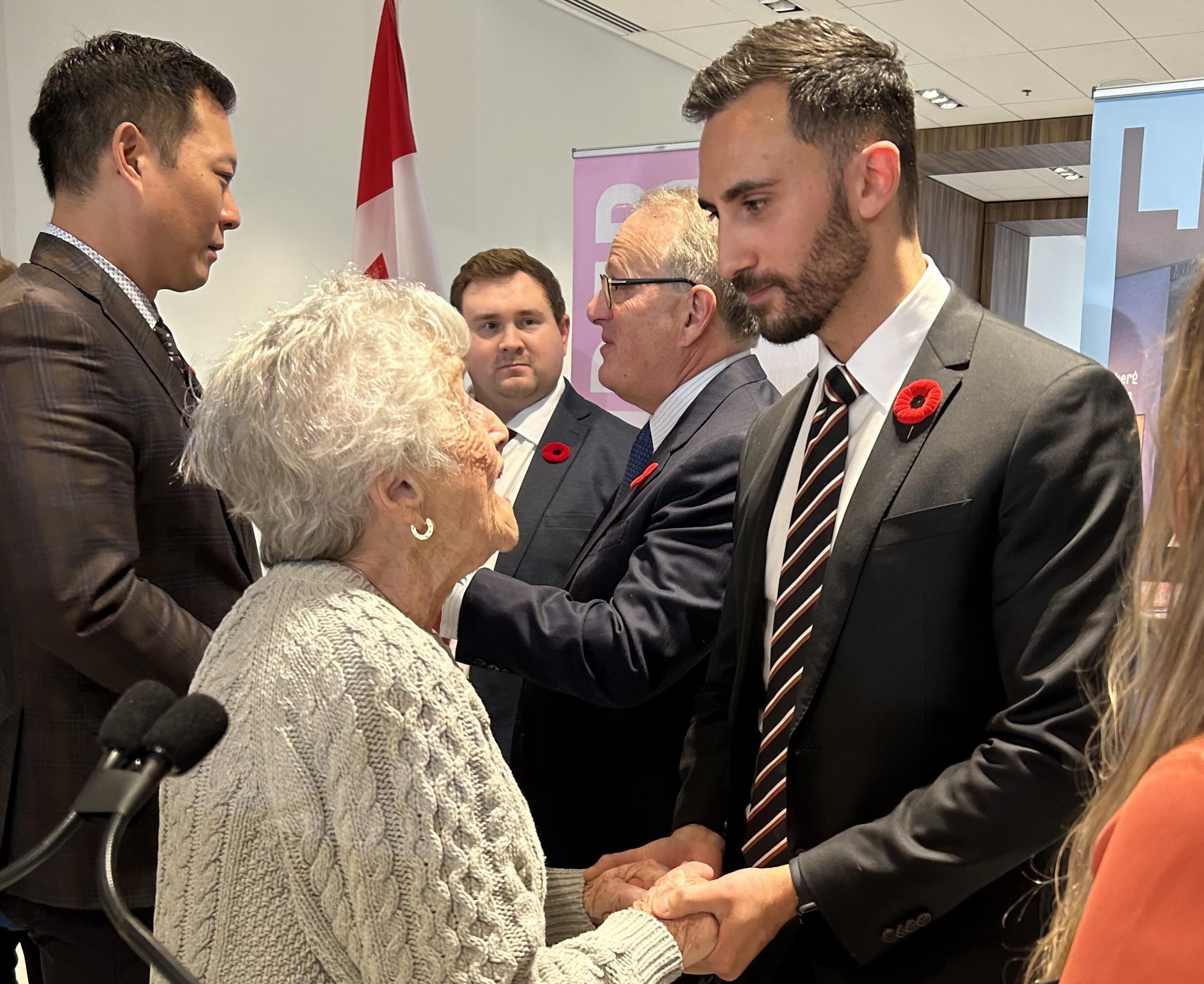Ontario is introducing new and expanded mandatory lessons about the Holocaust for Grade 10 students and providing more funding for teacher training on the subject, Education Minister Stephen Lecce announced at the Toronto Holocaust Museum on Nov. 1.
The curriculum will be part of the compulsory Grade 10 Canadian History course and will link the Holocaust to the rise of extremism and current antisemitism, beginning in September 2025.
The province is also earmarking $650,000 for Jewish community groups including Liberation75, Friends of Simon Wiesenthal and the Toronto Holocaust Museum to develop teacher resources.
Ontario was the first province to make Holocaust education mandatory for students, with a unit in Grade 6, that started this September. British Columbia announced this week that it would introduce mandatory Holocaust education for Grade 10 students.
“This is a significant strengthening of what is within the Grade 10 Canadian history course. It creates… mandatory learning knowledge specifically on the perils of extremism with respect to fascism. It connects Holocaust education to contemporary forms of denialism of genocide, of course including the Holocaust,” Lecce said in an interview with The CJN after the official announcement.
“The rise of denialism is an affront to Canadian values and democratic principles. It is exactly why we need to mandate learning and strengthen learning in high school, as we have already done in elementary schools, to help teach young people about historic truths and objective facts,” Lecce said.
The announcement, made at the start of Holocaust Education Week in Ontario, comes at time of rising antisemitism, which has been sharply accelerated by Israel’s war with Hamas in Gaza.
Referring to the increasing number of reported hate crimes and aggressive protests since Hamas’ attack on Israel on Oct. 7, Lecce said he was “deeply disturbed by the radical, vile, antisemitic behaviour and glorification of terror in our streets.”
“I’m appalled, I’m disturbed, but I’m not going to lose sight of the power of education to help change the course of history.”
The move to deepen Holocaust education in high school was welcomed by educators.
“If we lay the foundation in Grade 6, now that that has been integrated into the curriculum, then we can more strategically and intentionally build on what the foundation is for Grade 10 students who have stronger critical thinking skills and a stronger sense of history,” said Dara Solomon, executive director of the Toronto Holocaust Museum. “We can also weave in current events, like what we’re going through right now, in a way that is more challenging for younger grades.
“For Grade 10 students, who have more maturity and intellectual capacity, we can really ensure that the students are getting a solid Holocaust education and when they enter university and college life, they’re better equipped to stand up for injustices of all kinds.”
Classroom teachers have said they find the Holocaust a daunting subject to address and the additional funds for training is necessary, said Jody Spiegel, director of the Holocaust Survivors Memoirs Program at the Azrieli Foundation.
“We surveyed teachers a couple of years ago, we learned teachers don’t have the confidence to teach the topic in the classroom,” she said.
“This is an interesting initiative because it helps to support the educators who are grappling with how to make this relevant to students today. We talk about how October 7 was the largest massacre of Jews since the Holocaust. We, with the connection and memory and understanding, know what that means. What does that mean, even to Jewish kids, what does it mean?”
